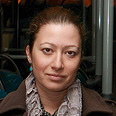Forward.com: "Day Schools Stuck in Neutral"
Enrollment Numbers Grow, But Only Among Ultra-Orthodox

By J.J. Goldberg
The month of December brought some bad news for Jewish day school advocates. According to the Avi Chai Foundation, which tracks these things, day school enrollment saw a "modest decline" of about 1.4% in the 2011-12 school year, compared with the year before.
The sharpest decline was reported among the Solomon Schechter schools of Conservative Judaism, which experienced a 3.8% drop, from 11,786 students nationwide in 2010 to 11,338 this year. They were followed by so-called Community (non-denominational and/or federation-sponsored) schools, which fell 2.5%, and Modern Orthodox schools, which fell 1.6%. Centrist Orthodox schools, which are similar to Modern Orthodox but segregate classes by gender, actually gained 1.7%.
The numbers offer several useful insights. Perhaps the most useful, though hardly the insight the authors intended, is how easily numbers can mislead. Comparing this year with last, we find a slight drop in day school enrollment, presumably due to the economy. When we dig a little deeper, though, we'll find a significant decline in non-Orthodox enrollment, while overall enrollment soars due to an ongoing Orthodox baby boom.
Looking deeper still, we find some eye-popping details. Most dramatic: the calamitous drop in Schechter school enrollment. In 1998, the year Avi Chai first took attendance, Schechter enrollment totaled 17,563 students in 63 schools nationwide. This year, as noted, enrollment is just 11,338 students in 43 schools. That's a 35% decline.
The main reason, several Schechter officials told me, is an exodus of families and whole schools to a network of non-denominational community schools with fewer religious rules. Community-school enrollment rose from 14,849 in 75 schools in 1998 to 19,417 in 91 schools this year. A smaller number may have left for Hebrew charter schools in New York and South Florida.
We'll also find an explosive growth in ultra-Orthodox or Haredi school enrollment, including both Hasidic and non-Hasidic (that is, misnaged or "yeshivish" black hat) schools, reflecting high birthrates. Modern Orthodox schools, by contrast, are essentially holding their own.
Avi Chai compiles its numbers by a census — literally contacting every day school in America and asking for numbers, grade by grade. It's probably the most accurate source of American Jewish demographic information, though limited in range. However, the full census is only conducted every five years. The last one was in 2008.
The figures released this past December are based on a partial census that's conducted annually between full headcounts. The partial tally includes only the five most modern school groupings: the four mentioned above (two Modern Orthodox, two non-Orthodox) plus the much smaller Reform day schools (total enrollment 4,300). Among those not included are the two Haredi groupings, Hasidic and Yeshivish, which account for more than half of all America's Jewish day school students.
Read more: http://www.forward.com/articles/148762/#ixzz1hx8i3u79





 Tanya RosenblitPhoto: Tzvika Tishler
Tanya RosenblitPhoto: Tzvika Tishler 
